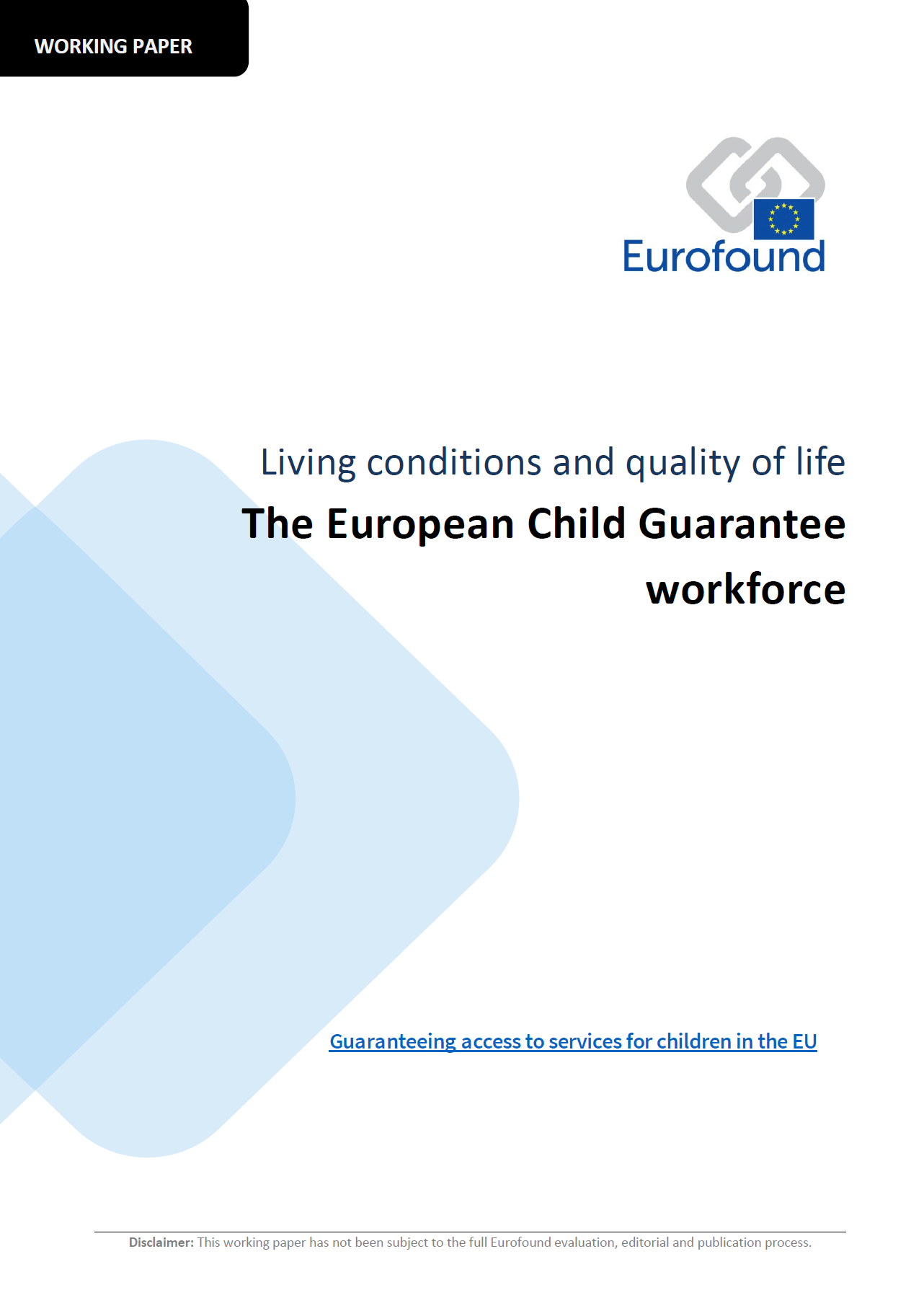
The Council of the European Union approved the European Child Guarantee (ECG) with the objective of addressing and combating child poverty and exclusion (Council of the European Union, 2021). The ECG aims to provide access to essential services and support to children (defined as persons under 18 years old) in the following key areas: early childhood education and care (ECEC), education (including school-based activities and at least one healthy meal each school day), healthcare, nutrition, and housing. The workforce in these areas plays a vital role in delivering accessible and high-quality services.
The aim of this project is to provide categories and definitions of workforce related to ECG and to map relevant data sources across EU.
This working paper is organised in three main sections. The first section, "Defining and categorising the workforce relevant to ECG” is further divided into subsections for ECEC, education, healthcare, nutrition (with a subsection for "At least one healthy meal each school day"), and housing. Each of these subsections includes definitions of the specific field, national differences found when doing a country-level mapping of the workforce and a general discussion. There is also a subsection related to those jobs that span across all the key areas described above and/or that cannot be directly classified within one of them. The second section includes mapping of the data sources at the international level relevant to the workforce categories identified in the first section. The document concludes with a third section summarising the main finds and classifications.
Authors: Publication:European Foundation for the Improvement of Living and Working Conditions (Eurofound),
Year of Publication:2024
Download

